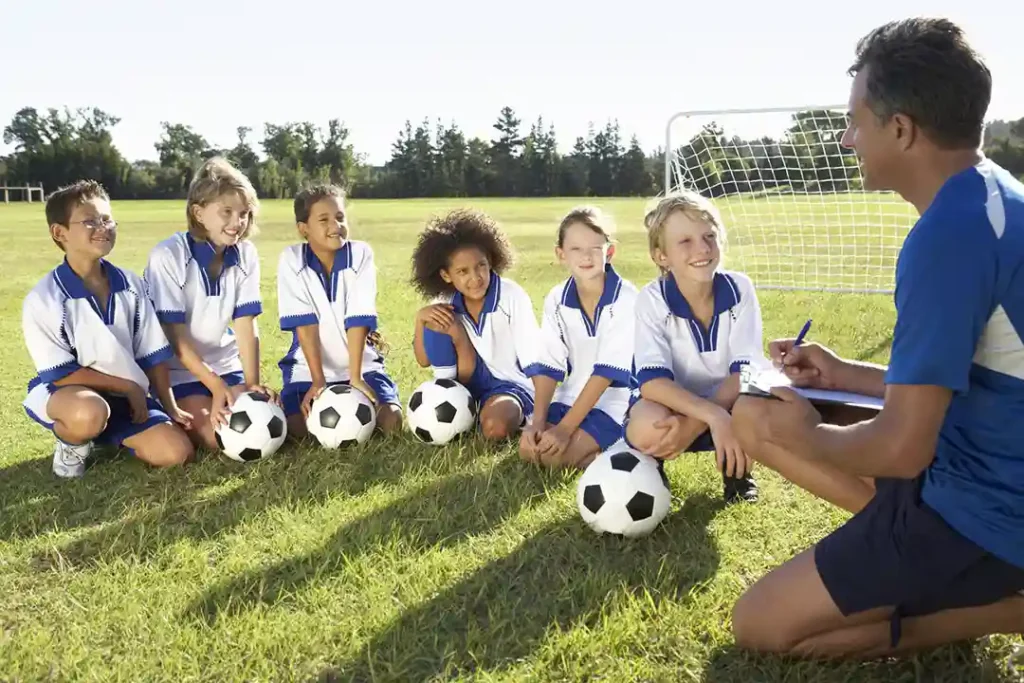When I first thought about becoming a youth sports coach, I was nervous. I wasn’t a former professional athlete or even a star player in high school. I was just someone who loved sports and wanted to help kids learn and grow. What I’ve learned since then is that coaching youth sports in your community isn’t about being perfect. It’s about showing up, caring, and being willing to learn alongside the kids.
If you’ve ever thought about it, you’re not alone. All over the country, more people are asking how to start coaching youth sports in your community. In 2025, with more kids joining teams and more families getting involved, there’s a real need for people like you. People who care. People who want to make a difference. And trust me, once you start, you’ll find it’s one of the most rewarding things you’ll ever do.
Why Coaching Youth Sports Really Matters
There’s something magical about watching a kid score their first goal or make their first catch. It’s not just about winning. Coaching youth sports is about building confidence, teaching teamwork, and helping kids stay active and healthy. With youth sports USA programs growing every year, there’s a rising need for volunteers and coaches who are ready to step up.
I’ve seen shy kids become leaders, and energetic kids learn focus—all because of what they experienced on the field. When you coach youth sports, you’re not just teaching the game. You’re shaping character. That’s powerful.
My First Steps into Coaching
I didn’t wake up one day and say, “I’m going to be a coach.” It started small. I signed up to help with my child’s local soccer team. At first, I was just handing out snacks and cheering from the sidelines. But as the season went on, the head coach asked if I wanted to help run a practice. I gave it a shot, and before I knew it, I was planning drills, encouraging the kids, and even learning the rules better myself.
If you’re wondering how to start coaching youth sports in your community, it really can be that simple. You don’t need a fancy background. You just need to show up, pay attention, and be willing to help.
What You Need to Become a Coach
You don’t need a coaching degree to start. Most youth leagues provide training, and some offer certification programs. These might cover things like first aid, safety, and basic rules of the game. I completed an online course through the National Alliance for Youth Sports, and it helped me feel more prepared and confident.
Of course, you’ll likely need a background check. Safety is always a top priority when working with children. It might sound intimidating, but it’s really just to make sure every coach is someone parents can trust.
The best part? You don’t need to be an expert in the sport. When I started coaching youth sports, I learned many things along the way—just like the kids did. Being a good listener, staying patient, and showing kindness go a long way.
How to Find a Coaching Opportunity in Your Area
Start by reaching out to your local community center or school district. Many towns have recreation departments that run seasonal sports like soccer, baseball, basketball, and flag football. You can also
Another way is to talk to other parents. That’s how I got started. Sometimes a team is short on volunteers, and if you step up, they’ll be thrilled to have your help.
And don’t worry if you’ve never coached before. Many leagues pair new coaches with experienced ones, so you can learn the ropes before leading your own team.
What a Typical Coaching Season Looks Like
When you start coaching youth sports in your community, expect to commit to about two to three hours a week. Practices usually happen once or twice a week, with games on weekends. I usually spend about 30 minutes before each practice planning fun drills that focus on teamwork and skill-building.
Games are exciting but also a learning moment. I always remind my team that effort matters more than the final score. Parents come out to cheer, and it becomes a joyful community event.
One thing I’ve learned: the season goes by fast. Watching the team grow from nervous first-timers to confident teammates is something I look forward to every year.
Teaching Life Lessons, Not Just the Sport

Every practice is a chance to teach more than just passing or dribbling. I often start and end with a short talk about sportsmanship, trying your best, or being a good teammate. I remember one season when a player struggled with losing. We talked about how every loss teaches us something. By the end of the season, that player was the first to cheer others on—even after a tough game.
Coaching youth sports means you’re a teacher, a mentor, and sometimes a cheerleader. It’s a role filled with little moments that add up to big impact.
Staying Connected with Parents and the Community
Clear communication makes a season run smoothly. I send out weekly updates using a simple email or team app like TeamSnap. Letting parents know about practice times, snack duty, and game locations helps everyone stay organized.
I also encourage parent involvement. Whether it’s helping with rides, setting up the field, or cheering from the sidelines, having families engaged creates a stronger, more fun experience for the kids.
Mistakes I Made (and What They Taught Me)
I’ll be honest. My first season wasn’t perfect. I mixed up practice times, forgot to bring the cones once, and even showed up in the wrong color shirt. But every mistake helped me grow. The kids didn’t mind. They were just excited to play.
What matters most is showing up, caring about the kids, and keeping a positive attitude. When you coach youth sports in your community, perfection isn’t the goal—progress is.
FAQs: Coaching Youth Sports in 2025
What sport should I start with if I’m new to coaching?
Start with a sport you enjoy or one that’s popular in your area. Soccer, basketball, and tee-ball are great choices for beginners.
Do I need coaching experience?
Not at all. Most leagues offer training and support. If you care about kids and enjoy sports, you’re already halfway there.
How do I coach youth sports without being an expert?
Use league resources, attend coaching clinics, and lean on other coaches. Focus on building confidence and having fun.
Are there costs involved?
Usually, leagues cover equipment. You may need to buy a whistle or shirt, but many programs provide what you need.
How do I get certified to coach?
Look for local or online courses through the National Alliance for Youth Sports or your city’s recreation department.
Can I coach if I work full time?
Yes! Most practices and games are held after work or on weekends. You can co-coach with someone to share duties.
What’s the hardest part of coaching youth sports?
Patience. Not every kid learns at the same pace, and you’ll need to adjust. But it’s worth every second.
How do I become a youth sports coach in 2025?
Contact your local rec league, sign up for a background check, attend an orientation, and you’re on your way.
Conclusion: You’re Exactly Who Your Community Needs
If you’ve ever asked yourself how to start coaching youth sports in your community, I hope this helps you take the leap. You don’t need to be perfect. You don’t need all the answers. What you need is a heart that cares and a willingness to learn.
Coaching youth sports USA programs isn’t just about teaching drills. It’s about shaping lives, making friends, and becoming part of something bigger. I started out unsure and nervous. Today, I can’t imagine my life without the teams I’ve coached and the memories we’ve made.
So go ahead—sign up. Show up. And see how your simple “yes” can change lives, including your own.



